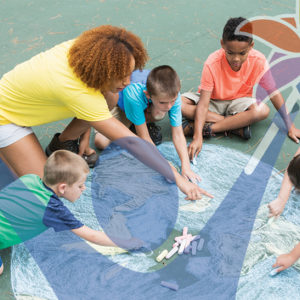Abused children often suffer physical injuries including cuts, bruises, burns and broken bones. Physical injury is not the only negative impact of maltreatment—it can also affect broader health outcomes, mental health, social development and risk-taking behavior into adolescence and adulthood.
Child maltreatment includes all types of abuse and neglect of a child under the age of 18 by a parent or caregiver that results in harm or potential harm. There are four common types of abuse.
Child maltreatment causes stress that can disrupt early brain development, and serious chronic stress can harm the development of the nervous and immune systems. As a result, children who are abused or neglected are at higher risk for health problems as adults. These problems include alcoholism, depression, drug abuse, eating disorders, obesity, high-risk sexual behaviors, smoking, suicide, and certain chronic diseases.
Shaken baby syndrome is a severe form of head injury caused by violently shaking an infant or child. It can occur from as little as 5 seconds of shaking. When an infant or toddler is shaken, the brain bounces back and forth against the skull. This can cause bruising of the brain, swelling, pressure, and bleeding in the brain. The violent shaking may result in severe injuries to the infant, permanent brain damage, or death.
Such shaking usually takes place when the infant is crying inconsolably and the frustrated caregiver loses control. In most cases, an angry parent or caregiver shakes the baby to punish or quiet the child. Many times the caregiver did not intend to harm the baby. Nevertheless, it is a form of child abuse. The result is a type of whiplash, similar to that seen in some auto accidents.
Shaken baby syndrome does not result from gentle bouncing, playful swinging or tossing the child in the air, or jogging with the child. It also is very unlikely to occur from accidents like falling off chairs or down stairs, or accidentally being dropped from a caregiver's arms. Short falls may cause other types of head injuries, although these are often minor.
The following materials offer a checklist for babysitters/caregivers and tips for calming a crying baby.

The Essentials for Childhood initiative is intended for communities that are committed to the positive development of children and families, specifically to prevent child abuse and neglect. While child maltreatment is a significant public health problem, it is also a preventable one. The steps suggested in the Essentials for Childhood framework—along with your commitment to preventing child maltreatment—can help create neighborhoods, communities, and a world in which every child can thrive.
In 2013 in Spokane County there were
5,527victims of child abuse or neglect in CPS accepted referrals.

Steps that each Spokane County resident can take to prevent child abuse and neglect in our communities.